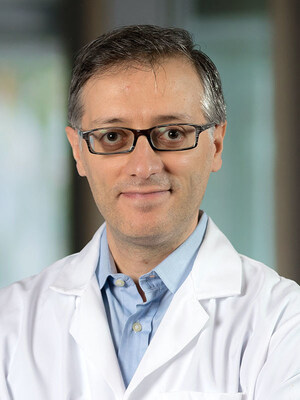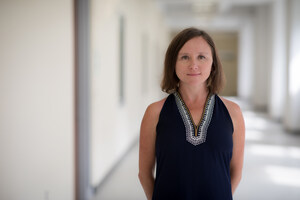Medical School Deans Convene to Discuss Value and Flaws of U.S. News & World Report Rankings
BRONX, N.Y., Oct. 27, 2011 /PRNewswire-USNewswire/ -- A panel of prominent medical school deans from across the country convened today in New York City to discuss the future of annual medical school rankings issued by U.S. News & World Report, which are now celebrating their 20th anniversary.
The U.S. News & World Report Summit, titled "The Impact and Future of Medical School Rankings," was co-sponsored by the magazine, Mount Sinai School of Medicine and Mount Sinai Medical Center.
The purpose of the summit was to discuss the usefulness of the U.S. News rankings, their flaws and how the ranking system can be improved.
The consensus among the nine deans, associate deans and academic representatives was that the rankings are deeply flawed. Several pointed out those defects include a response rate of between 17 and 19 percent to the reputational survey sent to residency program directors – a measure that accounts for one-fifth of the overall ranking score.
Strikingly, Jules L. Dienstag, M.D., the dean for medical education at Harvard Medical School, categorically rejected the meaning and utility of the rankings despite the fact that Harvard is currently ranked number one.
The deans cited other flaws, including a heavy weighting of high MCAT scores. While it's widely accepted that many students with lower MCAT scores prove to be excellent medical school students, physicians and physician-scientists, admitting students with lower scores negatively impacts a school's ranking and likely discourages diversity goals.
Allen M. Spiegel, M.D., the Marilyn and Stanley M. Katz Dean at Albert Einstein College of Medicine of Yeshiva University, stressed the need for more ethnically and racially diverse physicians given the demographics of the U.S. "Having doctors that you can relate to improves care," he said. Dr. Spiegel highlighted the high incidence of health disparities in the U.S. as a key driver for the lower average life expectancy in the U.S. as compared with countries in Western Europe which spend far less per person on health care than the U.S.
The deans and the audience for the panel discussion – which included many medical students and prospective students – agreed that the U.S. News ratings do little to reflect the educational quality of each medical school or its commitment to community service.
The summit was moderated by Brian Kelly, editor of U.S. News & World Report, and included Robert Morse, director of data research at U.S. News, who has led the rankings project for years. They both agreed to consider all feedback on the rankings methodology and potentially collaborate more with the Association of American Medical Colleges (AAMC), which collects data that may better inform the U.S. News rankings.
The two panels of deans, associated deans and academic representatives included Dr. Spiegel; Dr. Dienstag; R. Michael Tanner, Ph.D., Association of Public and Land-Grant Universities; Lee Goldman, M.D., M.P.H, Columbia University College of Physicians and Surgeons; Nancy. C. Andrews, M.D., Ph.D., Duke University School of Medicine; Dennis S. Charney, M.D., Mt. Sinai School of Medicine; Joseph P. Grande, M.D., Ph.D., Mayo Medical School; Robert N. Golden, M.D., University of Wisconsin-Madison School of Medicine & Public Health; and Robert Alpern, M.D., Yale School of Medicine.
About Albert Einstein College of Medicine of Yeshiva University
Albert Einstein College of Medicine of Yeshiva University (http://www.einstein.yu.edu/home/default.asp) is one of the nation's premier centers for research, medical education and clinical investigation. During the 2010-2011 academic year, Einstein is home to 724 M.D. (http://www.einstein.yu.edu/education/md-program/md-program.aspx?id=11144) students, 256 Ph.D. (http://www.einstein.yu.edu/phd/index.asp?home) students, 122 students in the combined M.D./Ph.D. program (http://mstp.aecom.yu.edu/), and 375 postdoctoral research fellows (http://www.einstein.yu.edu/belfer_institute/page.aspx). The College of Medicine has 2,770 full time faculty members located on the main campus and at its clinical affiliates (http://www.einstein.yu.edu/home/affiliates.asp). In 2010, Einstein received nearly $200 million in support from the NIH. This includes the funding of major research centers at Einstein (http://www.einstein.yu.edu/home/nih.asp) in diabetes, cancer, liver disease, and AIDS. Other areas where the College of Medicine is concentrating its efforts include developmental brain research, neuroscience, cardiac disease, and initiatives to reduce and eliminate ethnic and racial health disparities. Through its extensive affiliation network involving five medical centers in the Bronx, Manhattan and Long Island – which includes Montefiore Medical Center (http://www.montefiore.org/), The University Hospital and Academic Medical Center for Einstein – the College of Medicine runs one of the largest post-graduate medical training programs in the United States, offering approximately 150 residency programs to more than 2,500 physicians in training. For more information, please visit www.einstein.yu.edu (http://www.einstein.yu.edu/home/default.asp).
CONTACT: Kimberly Newman, +1-718-430-3101, [email protected]
SOURCE Albert Einstein College of Medicine
WANT YOUR COMPANY'S NEWS FEATURED ON PRNEWSWIRE.COM?
Newsrooms &
Influencers
Digital Media
Outlets
Journalists
Opted In






Share this article